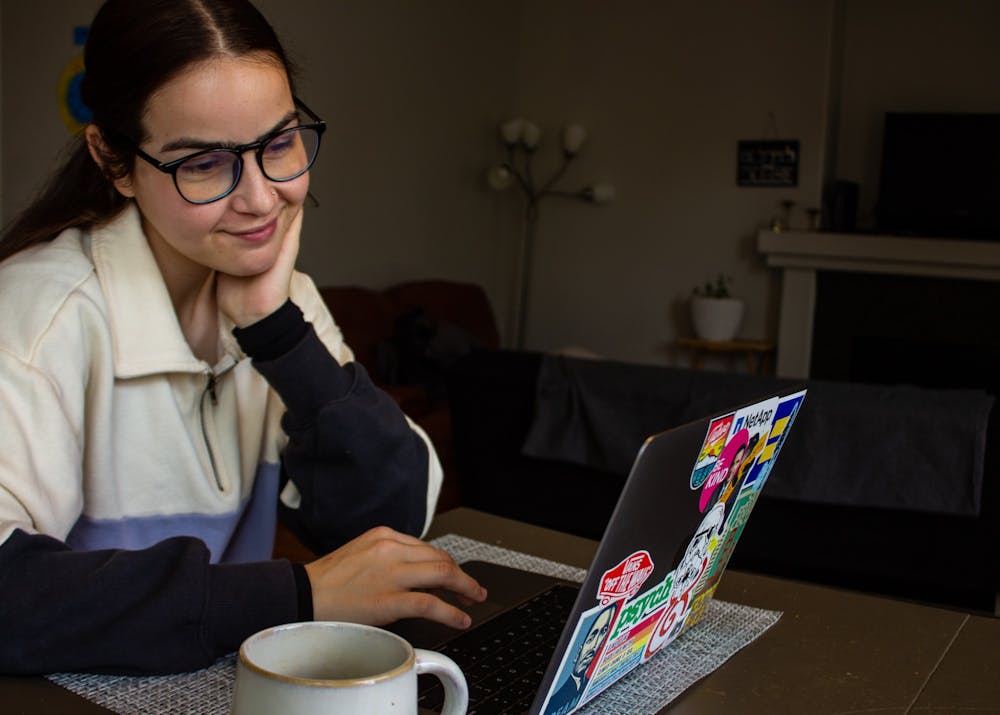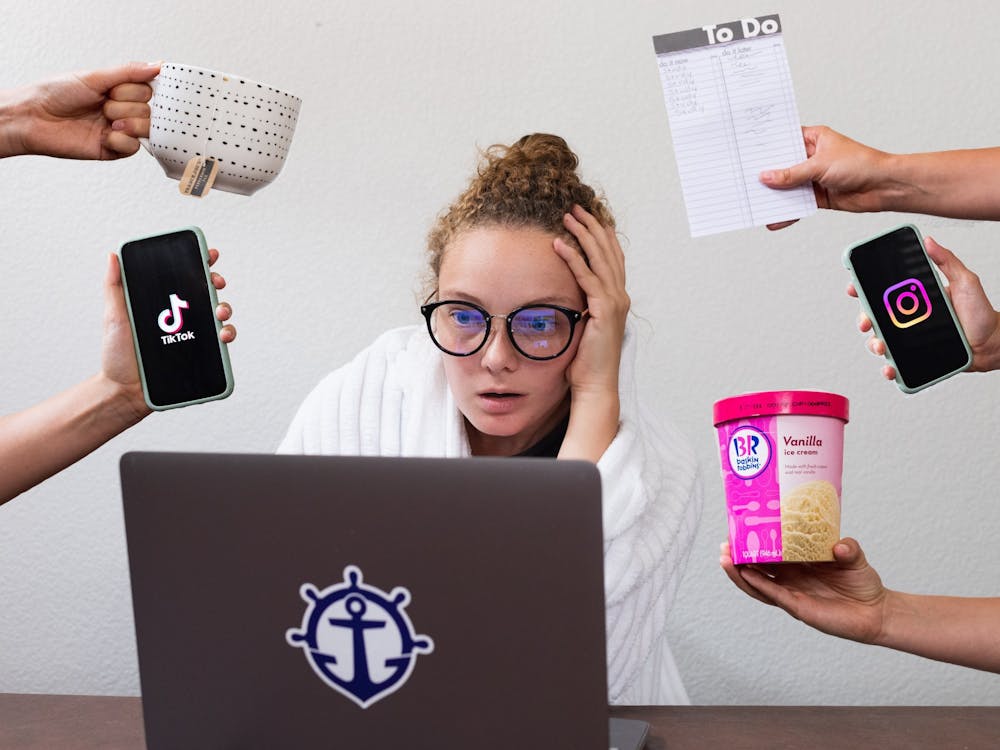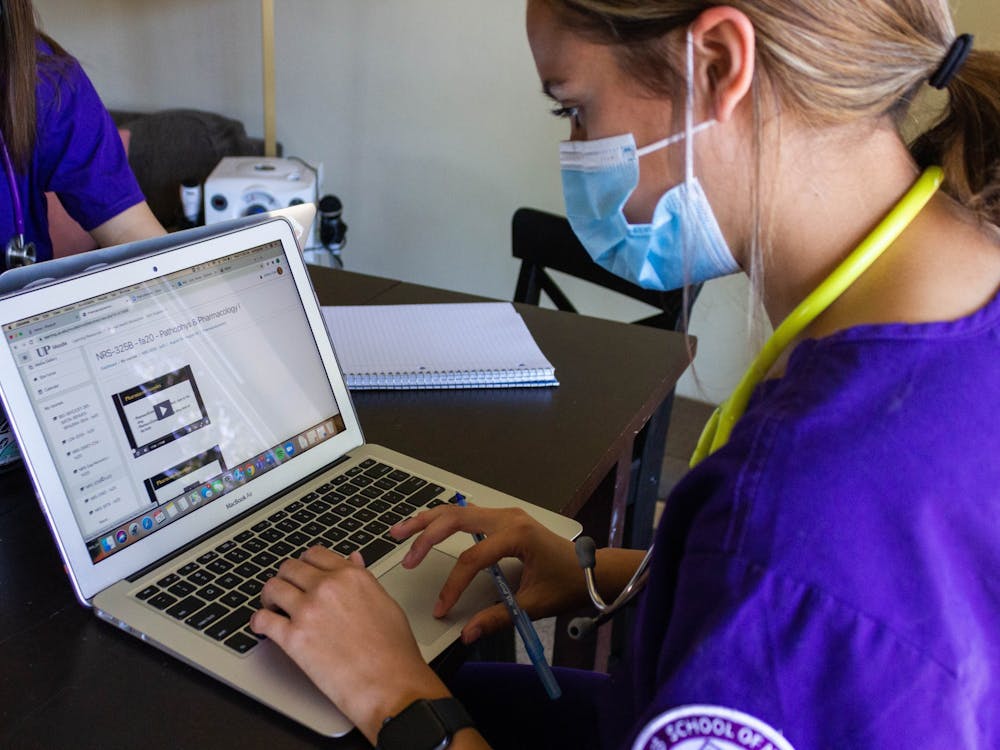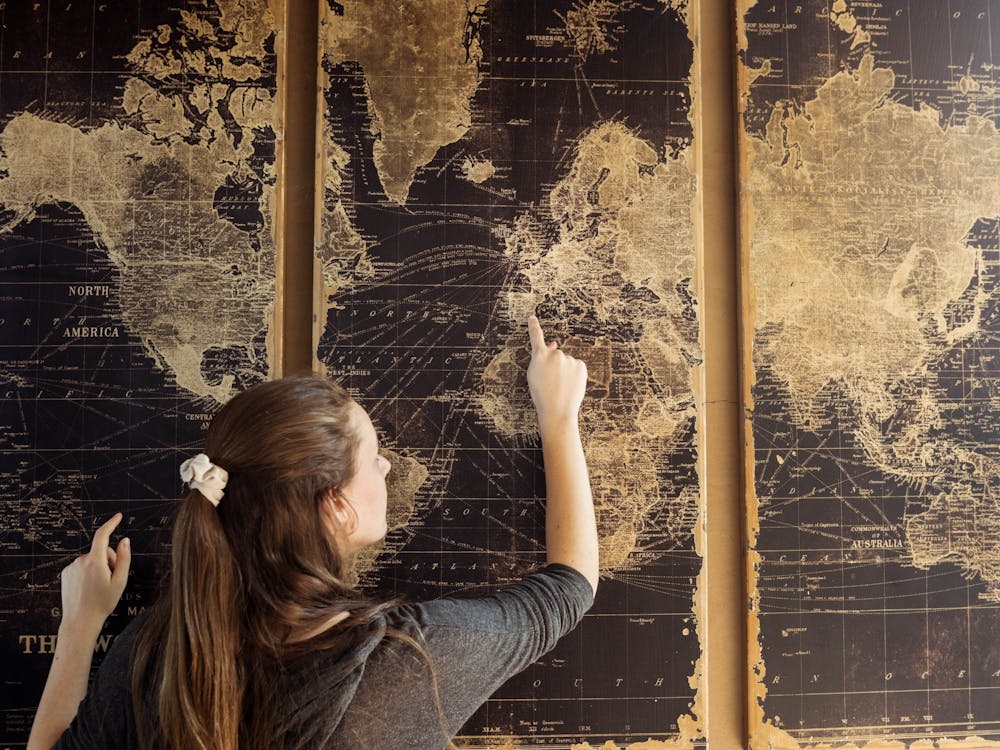Rewind six months to the beginning of COVID-19 induced isolation, when sitting bored and alone on your couch watching Tiger King seemed to be the only logical way to spend your time. If you were single, and quarantining alone, it is likely that you felt inclined to pick up your phone, download a dating app, and start swiping.
For singles everywhere, quarantine isolation has infringed upon the time that many young adults use to develop friendships and relationships with others around them. It used to be as easy as swiping right on someone you thought was cute, and scheduling a late night rendezvous. But amid a global pandemic, dating has looked vastly different.
Stay at home orders have changed the dating setting from trendy bars and house parties to Zoom dates and socially distanced walks (masks on, of course). To avoid exposing yourself to a variety of different people through dating (as normal), we have seen a shift from casual dating and “hookup culture,” to a slower “get to know you” process and the development of a deeper connection with someone before you agree to meet in person.
The downside to this change is that it is currently impossible to emulate actual physical chemistry and touch over Zoom and FaceTime. And odds are a handful of the people you may be messaging through Tinder or Snapchatting daily aren’t half as witty or interesting without the input of their friends or family members.

For the time being, couples are turning to virtual programs such as zoom to facilitate dates. COVID safety precautions have made singles hesitant to meet new people in person.
Photo Illustration by Emma Sells
At the beginning of the COVID-19 pandemic, some students were getting creative by participating in the UP version of Love Is Blind via Instagram, based off of the Netflix series.
“I feel like some people are realizing that they don't know how to hold conversations as well, or get a conversation rolling as well online or over text which is completely understandable,” UP Love Is Blind participant Lisa Erenstein said.
After participating in the show, Erenstein emerged without having decided to commit to any particular participant, but she enjoyed the experience and was glad to have been a part of the show and get to know other UP students.
There are perceived positives to the ways that COVID-19 has changed dating as well. With hookups off the table, people are forced to talk to the person they are interested in over FaceTime or Zoom to actually get to know each other (rather than just watching TV and making out). The freedom of quarantine gives people time to actually talk to and engage with people, without the responsibilities of work and school.
According to TIME, dating apps like Bumble have seen an increase in “quality chats” based on the length of messages and duration that the conversations last over the quarantine period. Dating.com reported that global online dating was up by 82% in early March.

Dating apps such as Bumble provide methods of communication when in person dates feel too risky. Conversations on these apps became longer and more in-depth since the start of quarantine due to the inability to meet up in real life.
Photo Illustration by Emma Sells
Distance dating is also able to highlight the quality of conversation you're able to have with someone without the conversational segways created by food, TV shows or movies. While this may be challenging or awkward at first, it gives a unique opportunity to develop a deeper bond with someone. If you start feeling the conversation dying, just ask about how they cope with a global crisis . . . that is bound to break the ice.
“Starting a relationship by texting and FaceTiming helps to actually get to know each other without other distractions before you decide you want to go on a real date in person,” Junior Grace Batra said.
The virtual dating sphere also eliminates many dating pressures. Through Zoom and FaceTime, there is no need to decide who is paying for the bill or if you should invite him/her back to your place at the end of the night (many singles are saving a fortune on fancy dinners as well).
Distance dating is a change that TIME believes we will continue to see after COVID-19 social distancing orders are lifted. According to TIME, the COVID-19 pandemic might permanently alter the way that singles interact with each other, going on virtual dates first and even avoiding touching until after a few in person dates.
Having nearly endless possibilities of romantic partners for virtual dates may seem daunting and overwhelming. But don’t worry. According to TIME, an easy way to cut down your options is by ruling out the entire category of “non-quarantiners.” People that irresponsible clearly aren’t relationship material.
Havi Stewart is the Living editor for The Beacon. She can be reached at stewarth22@up.edu.








